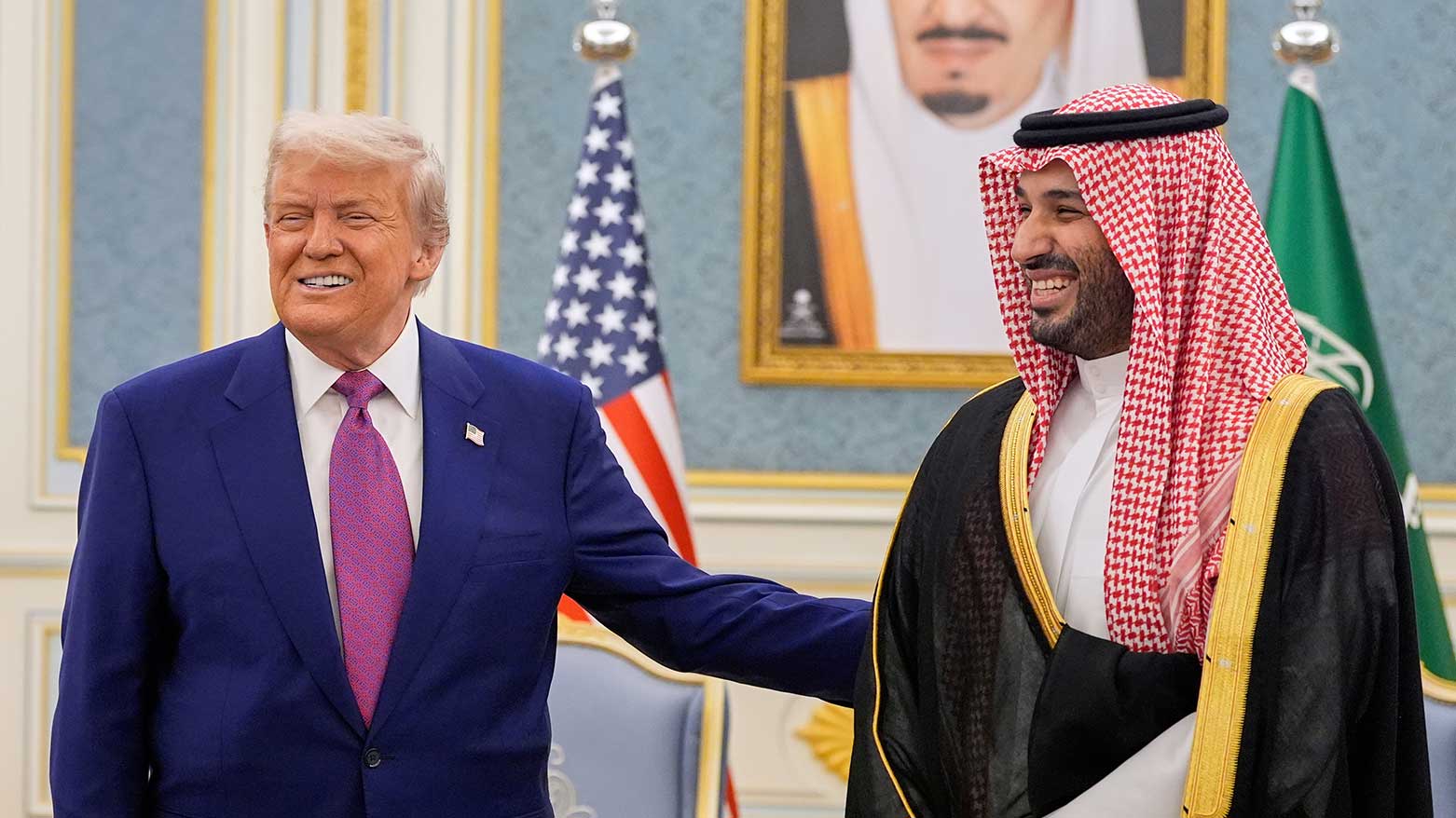Saudi Crown Prince Heads to Washington for High-Stakes Visit Covering Defense, AI, Nuclear Talks and Regional Diplomacy
Mohammed bin Salman’s first U.S. visit since the Khashoggi killing signals a full reset in bilateral ties, as Washington and Riyadh seek sweeping security, economic, and geopolitical agreements — including a potential path to Saudi–Israel normalization.

ERBIL (Kurdistan24) — Saudi Crown Prince Mohammed bin Salman (MBS) is set to arrive in Washington this week for a high-profile visit that marks his first trip to the United States since the 2018 assassination of journalist Jamal Khashoggi — an incident that triggered global outrage and temporarily strained relations between Riyadh and Washington.
President Donald Trump is planning to receive the crown prince at the White House with a ceremony and a black-tie dinner, effectively granting the event the stature of a state visit. Trump signaled the importance he attaches to the meeting, telling reporters,
“We’re honoring Saudi Arabia, the Crown Prince.”
While the crown prince’s 89-year-old father, King Salman, remains the kingdom’s official ruler, MBS has assumed nearly all executive authority and represents Saudi Arabia at major diplomatic gatherings. Tuesday’s meeting will be his first at the White House in more than seven years and comes as the Trump administration hopes to persuade Riyadh to join the Abraham Accords by establishing diplomatic relations with Israel.
The visit comes at a critical geopolitical moment. U.S.–Saudi relations, once strained over Khashoggi’s murder and diverging regional strategies, now appear fully recalibrated. Even President Joe Biden, who vowed to make Saudi Arabia a “pariah” during his 2020 campaign, ultimately traveled to Riyadh in office and met with MBS.
Trump, who maintained ties with the prince throughout his first term, is now moving toward an expansive partnership built on defense, energy, and advanced technology — including discussions over AI cooperation and Saudi Arabia’s longstanding interest in developing a civilian nuclear program.
According to U.S. officials, both sides are racing to finalize a broad package of security and economic agreements ahead of the visit. Central to the negotiations is a proposed U.S.–Saudi security guarantee modeled on Washington’s recent pledge to Qatar.
While this would fall short of a formal treaty — unlikely to pass in the U.S. Senate — it would significantly deepen defense ties and could be signed during MBS’s visit. The Saudis are also pursuing a vast weapons deal that includes the purchase of dozens of F-35 fighter jets. Israel, according to Axios, has indicated it would not oppose the sale if it were tied to progress on Saudi–Israel normalization.
Behind the scenes, the diplomatic choreography has been intense. Saudi Defense Minister Prince Khalid bin Salman, MBS’s younger brother, met with U.S. Secretary of State Marco Rubio, War Secretary Peter Hegseth, and White House envoy Steve Witkoff in Washington last week.
Senior Saudi economic and energy officials have also traveled to Washington to prepare for the visit. Meanwhile, Jared Kushner — Trump’s son-in-law and a key architect of the Abraham Accords — met with MBS in Riyadh in recent days to discuss Gaza, regional security, and normalization prospects.
Normalization with Israel remains one of Trump’s top priorities heading into the meeting. A framework discussed before the October 7, 2023 Hamas attack included a U.S. defense treaty for Saudi Arabia and U.S. support for a Saudi civilian nuclear program in exchange for diplomatic ties with Israel. Those talks were derailed by the Gaza war but have resumed following a ceasefire. Trump believes a breakthrough is again within reach.
“I hope to see Saudi Arabia go in, and I hope to see others go in,” he said recently.
However, significant obstacles remain. Saudi Arabia has repeatedly insisted it will only normalize ties with Israel if there is a “credible” and “irreversible” pathway toward Palestinian statehood. Israeli Prime Minister Benjamin Netanyahu has so far refused to accept any such terms, leaving a core gap that negotiators have struggled to close. U.S. officials say they hope to make at least incremental progress during this week’s meeting.
Economically, Riyadh is using the visit to strengthen investment links with U.S. companies. Saudi Arabia plans to host an investment summit at the Kennedy Center the day after the White House meetings, bringing together top American CEOs, governors, and business leaders — many of whom have received personal invitations from Trump.
The gathering will follow up on Trump’s May visit to Saudi Arabia, during which the kingdom announced plans to invest $600 billion in the United States. Many of those agreements remain unrealized, a point of quiet frustration for Saudi officials.
The symbolism of the crown prince’s return to Washington cannot be overstated. For MBS — widely viewed as the leader of the Arab and Muslim world — the visit represents a decisive step toward rehabilitating his international image after the Khashoggi murder.
Now, with a lavish White House welcome, discussions over advanced weapons systems, a potential security guarantee, and renewed momentum toward Saudi–Israel normalization, Mohammed bin Salman arrives in Washington not as a controversial figure seeking rehabilitation, but as a central strategic partner.
The meetings could reshape U.S.–Saudi relations for a generation — and potentially reorder regional alliances across the Middle East.